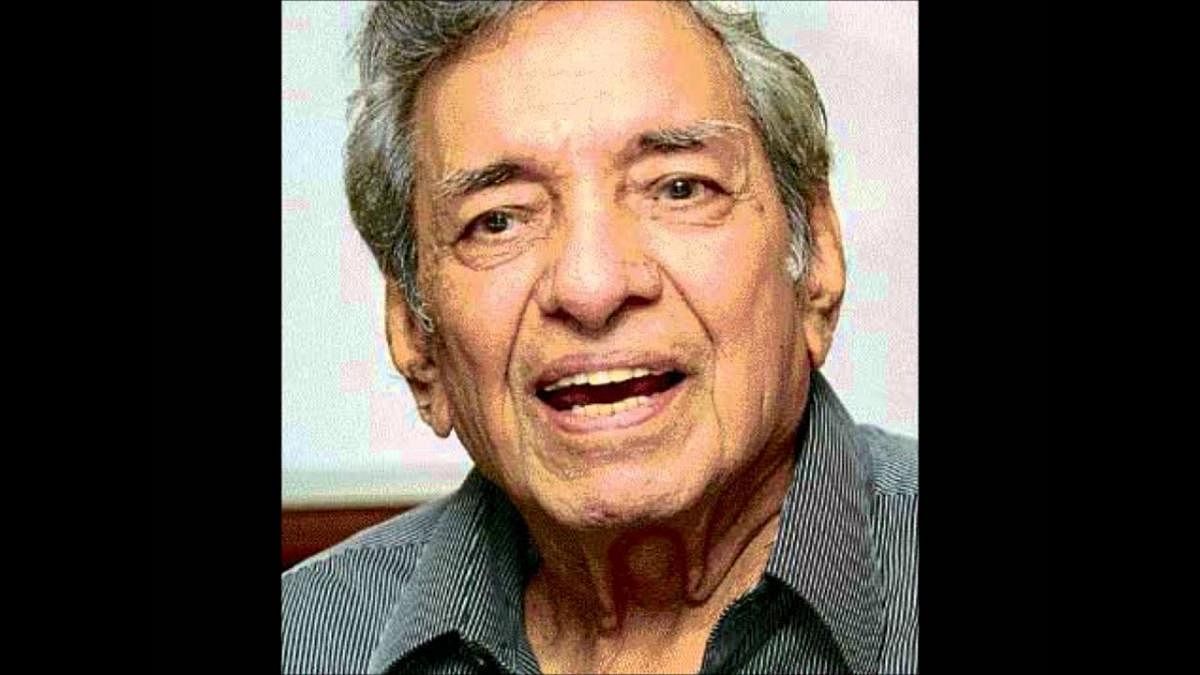
Ye wadiyan, yeh fizaayein, bula rahi hain tumhe (Aaj Aur Kal, 1963), Zindagi ke safar mein akele the hum (Nartaki, 1963), Sau baar janam lenge (Ustaadon Ke Ustaad, 1963), Jaan-e-bahaar husn tera bemisal hai (Pyaar Kiya Toh Darna Kya, 1963), Zara sun haseena-e-nazneen (Kaun Apna, Kaun Paraya, 1963), Baazi kisi ne pyar ki jeeti ya haar di (Nazrana, 1961), among others are numbers from Ravi Shankar Sharma that Hindi film music aficionados can never forget.
In a song, the singer, lyricist and composer equally contribute to creating the magic. But unfortunately, the singers have always got the credit and lyricists and composers have seldom received lavish accolades.
So, when you listen to Ye zulf agar khul ke bikhar jaaye toh accha, Chhoo lene do nazuk hothon ko (Kaajal, 1965), Aap aaye toh khayal-e-dil-e-nashaad (Gumrah, 1963) or Neele gagan ke tale (Humraaz, 1967), you think of Rafi or Mahendra Kapoor who sang these numbers or even remember Sahir Ludhianvi for writing them. But, you hardly care for Ravi, the composer.
Ravi had an in-built fascination for music. Though he had no formal training in music, he learnt the craft by listening to his father sing bhajans. He taught himself to play the harmonium and other classical instruments.
In a radio interview, Ravi narrated a story that Rafi and Mukesh came to Delhi to sing, right after independence. Young Ravi met Rafi and told him that he wanted to become a musician. Rafi advised him to practice and learn how to read the notations. Later, Ravi composed numerous fabulous numbers for Rafi. Rafi could never recall that this was the man whom he advised to learn to read the notations. Nor did Ravi ever tell Rafi about that!
Ravi was discovered by Hemant Kumar. A man of friendly disposition, Ravi got along well with all lyricists and singers of his era. He was a non-interfering composer. Yet, he knew his onions. He was a subtle and silent taskmaster.
That’s why, apart from the legendary Rafi, he could use Mahendra Kapoor’s voice to the optimum and give him songs like, Chalo ek baar phir se ajnabi ban jaye hum dono (Gumrah), Sansar ki har shay ka itna hi fasana hai (Dhund, 1973), Dil ki ye aarzoo thi koi or Abhi alvida mat kaho (Nikaah, 1982).
His compositions gave an impetus to Asha’s career. Who can forget the numbers like Tora mann darpan kehlaye (Kaajal), Aage bhi jaane na tu (Waqt, 1965) and Sun le pukar (Phool Aur Patthar, 1966) or Sheeshe se pee ya paimane se pee (Phool Aur Patthar).
He successfully teamed up with the mercurial Sahir Ludhianvi and gave beautiful tunes to his poetry for films like Aaj Aur Kal, Amanat, Aankhein, Dhund, Ek Mahal Ho Sapno Ka. B R Chopra had so much faith in Ravi’s genius that he chose him to score the music for his film Nikaah (1982).
He was advised that a Muslim composer like Naushad would be a better choice to compose the music as Nikaah was based on an elite Muslim background. Ravi did justice to Chopra’s faith and the film’s music is still popular after more than four decades.
He also composed the music for Chopra’s popular TV serial Mahabharat. His music went on to inspire later day music directors too. The opening bars of Chanda mama door ke inspired the tune for the hit song Ek do Teen in the 1988 film Tezaab.
He became very popular in the South as Bombay Ravi. He’d get the Malayalam songs translated into Hindi. Only after imbibing the spirit of a song would he compose it. Ravi was a constant in Hariharan films and their combination is regarded as one of the best in Malayalam. Ravi has composed for many films produced by South Indian banners such as Ghoonghat, Gharana, Grahasti, Aurat, Samaj Ko Badal Dalo (Gemini), Meherbaan, Do Kaliyaan (AVM), Bharosa, and Khandan (Vasu Films).